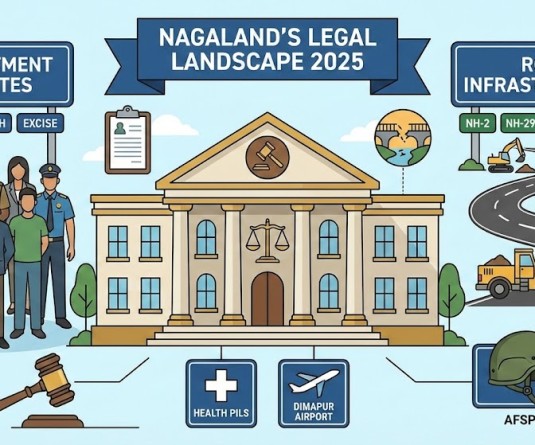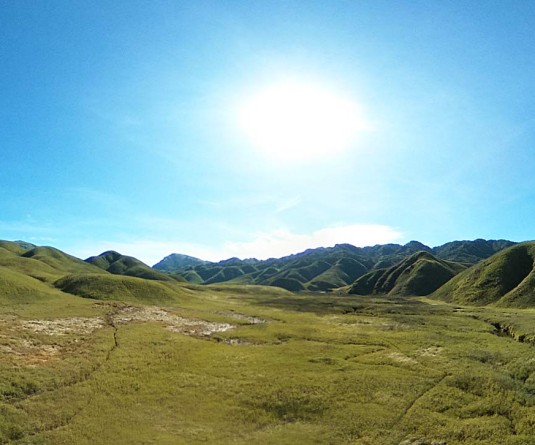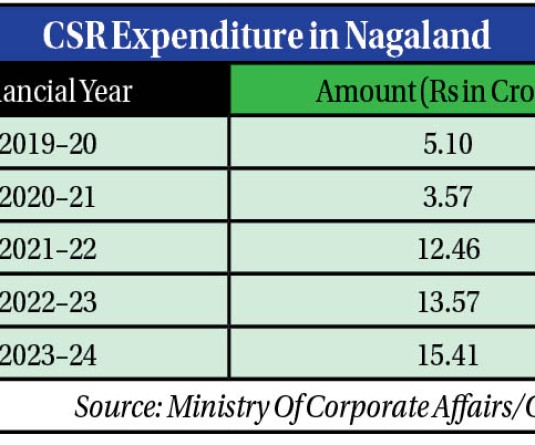A treacherous stretch of the Jalukie–New Peren road.
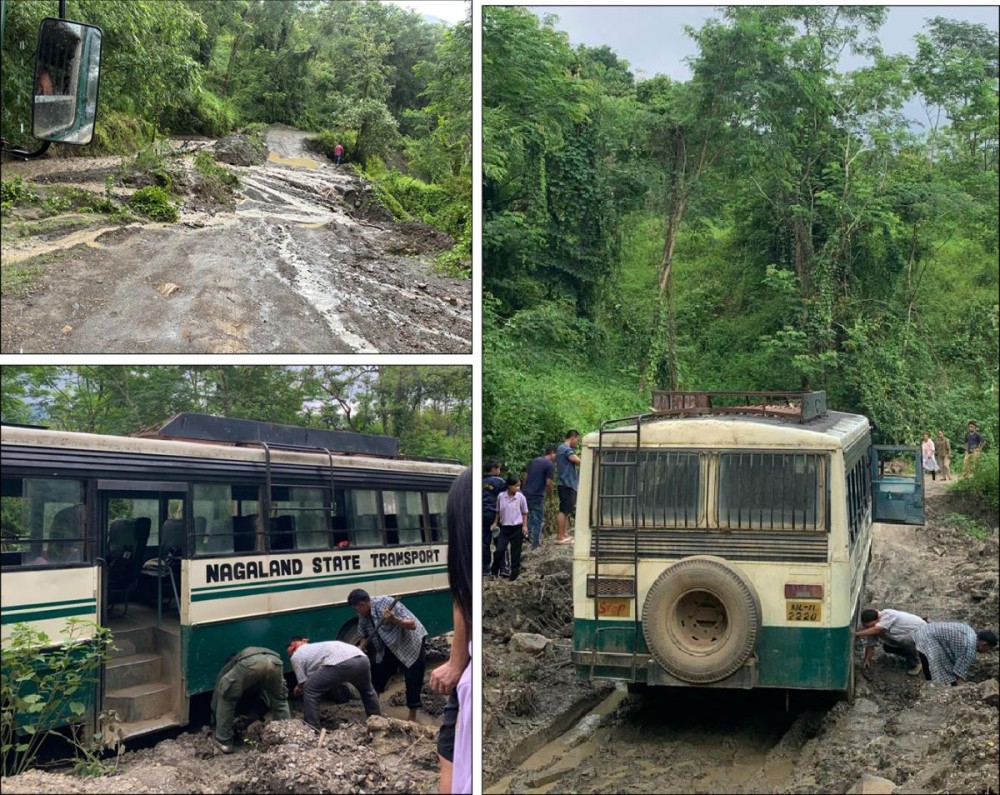
Plight of Students and Teachers of Peren Government College
Tokavi K Zhimo
Zunheboto | September 15
Every day, students and teachers of Peren Government College risk their lives commuting to and from the campus, navigating a treacherous and poorly maintained road that has turned a simple journey into a daily ordeal.
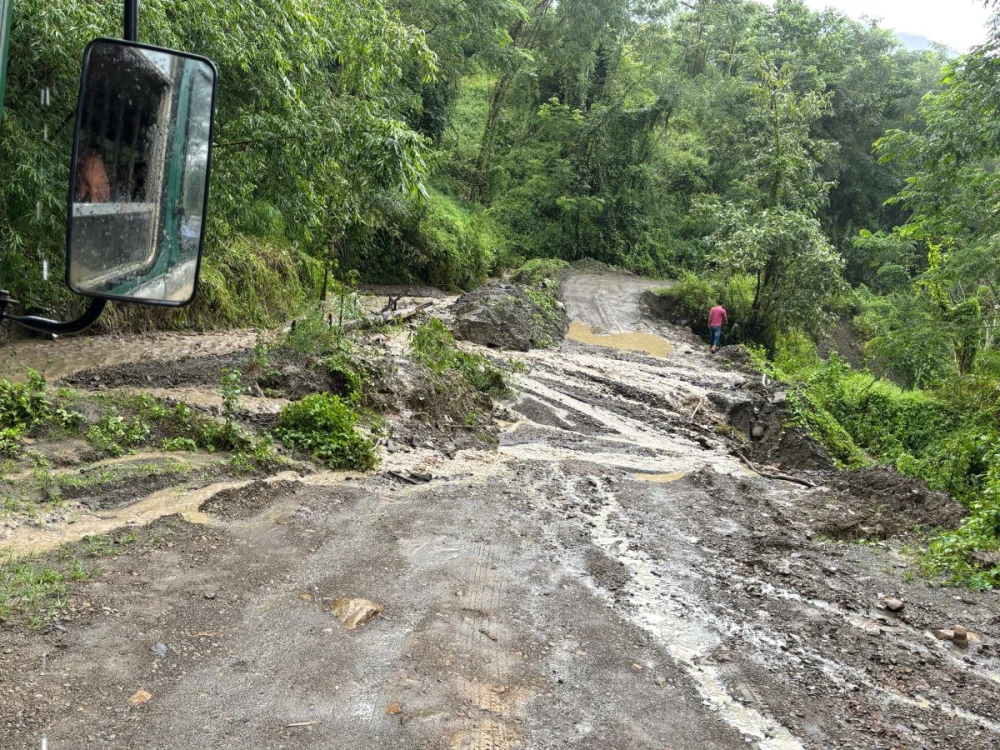
What should be a routine commute has become a test of survival especially for those traveling from Jalukie, who endure nearly two hours on difficult terrain. The situation is made worse by the complete lack of mobile network reception along the route. When vehicles get stranded often in the most isolated stretches passengers are left helpless, unable to contact anyone. Families, unaware of delays, are left in fear late into the evening, wondering whether their loved ones are safe.
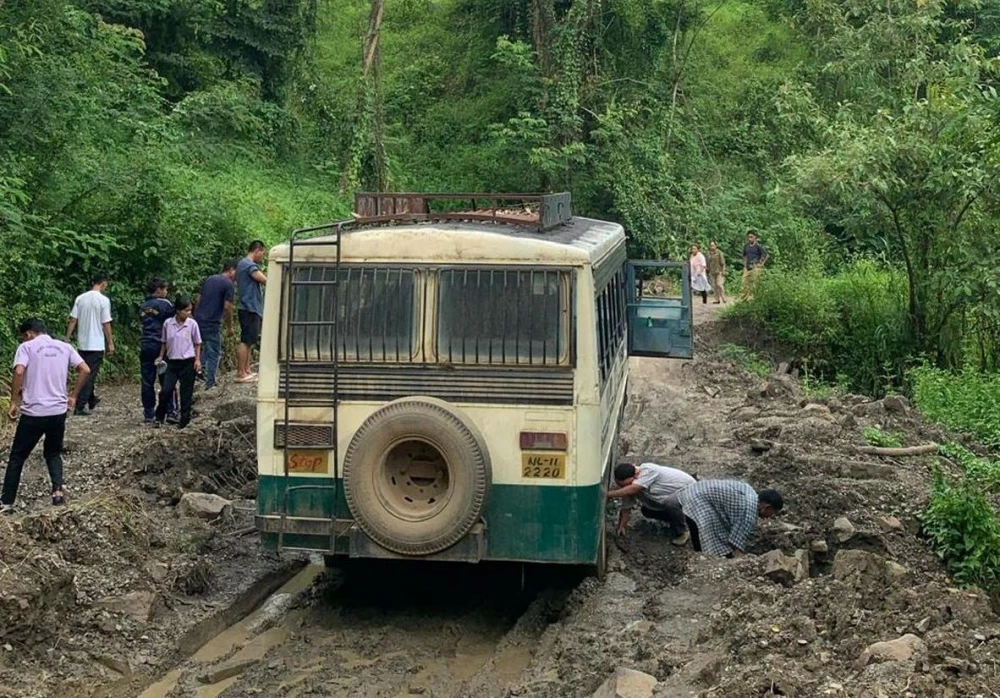
Since the college was relocated to New Peren (District Headquarters), it now lies between Jalukie and Peren. For students and faculty traveling from Peren, the commute remains relatively manageable, with only minor inconveniences during the rainy season. However, the same cannot be said for those commuting daily from Jalukie. Their journey includes a particularly dangerous 10–15 minute stretch just before reaching the college where road conditions are at their worst and where hardly any private vehicles dare to pass.
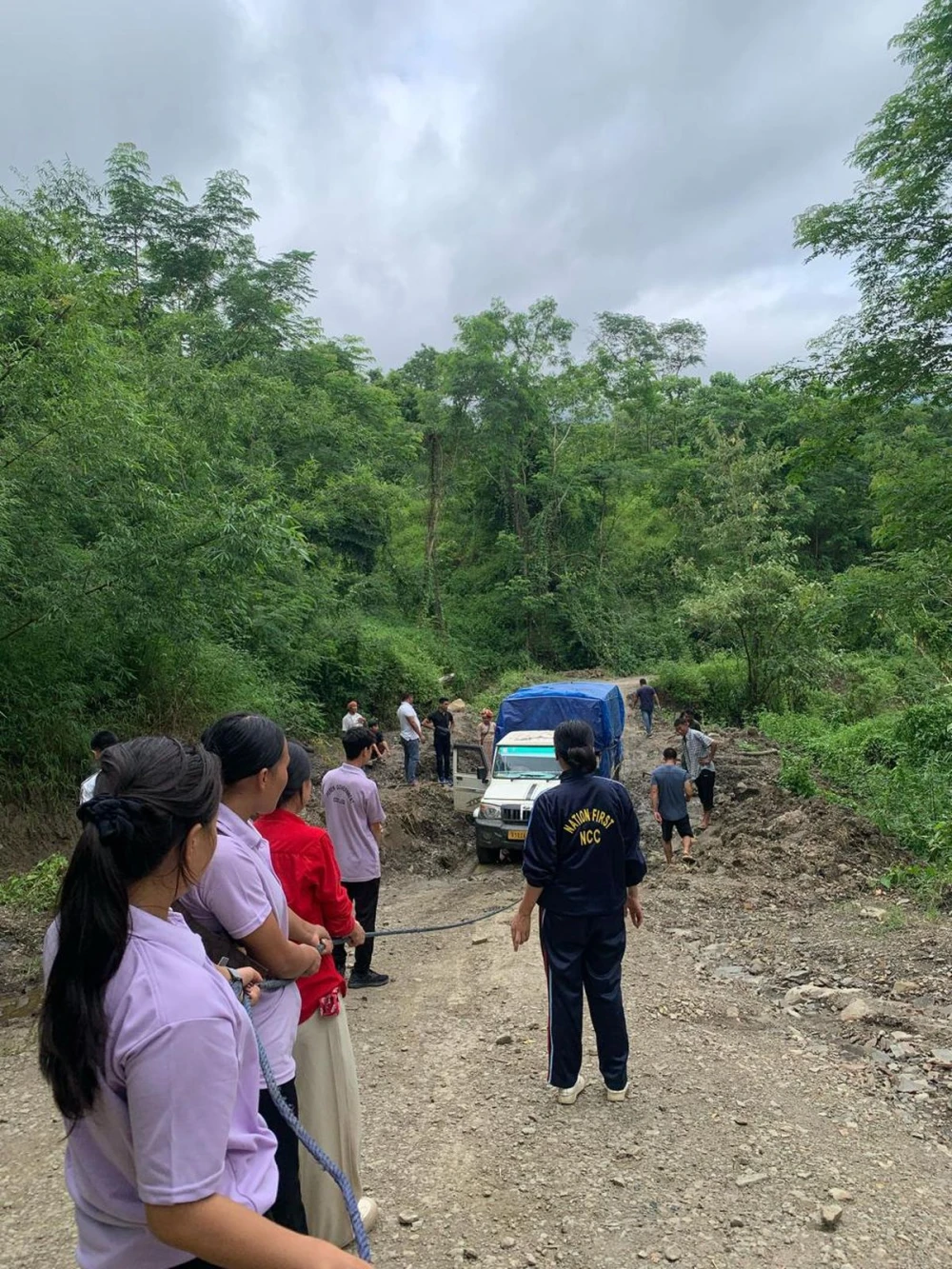
Students and staff have repeatedly appealed to the concerned authorities, especially during the dry season when repairs would be easier to implement. Despite these efforts, no significant steps have been taken. As per our reliable source, this continued inaction has left many feeling frustrated, neglected, and vulnerable.
Currently, only one Nagaland State Transport (NST) bus is available for those commuting from Jalukie, and it remains the sole mode of transportation for both teachers and students. The bus departs Jalukie at around 8:30 a.m. and reaches the college after 9:35 a.m. The return trip begins after classes end at 3:00 p.m., with commuters reaching home well after 4:00 p.m. often later if the bus encounters issues along the way. No taxis or private vehicles operate on the worst sections of the road, leaving no backup options for those who rely entirely on this bus.
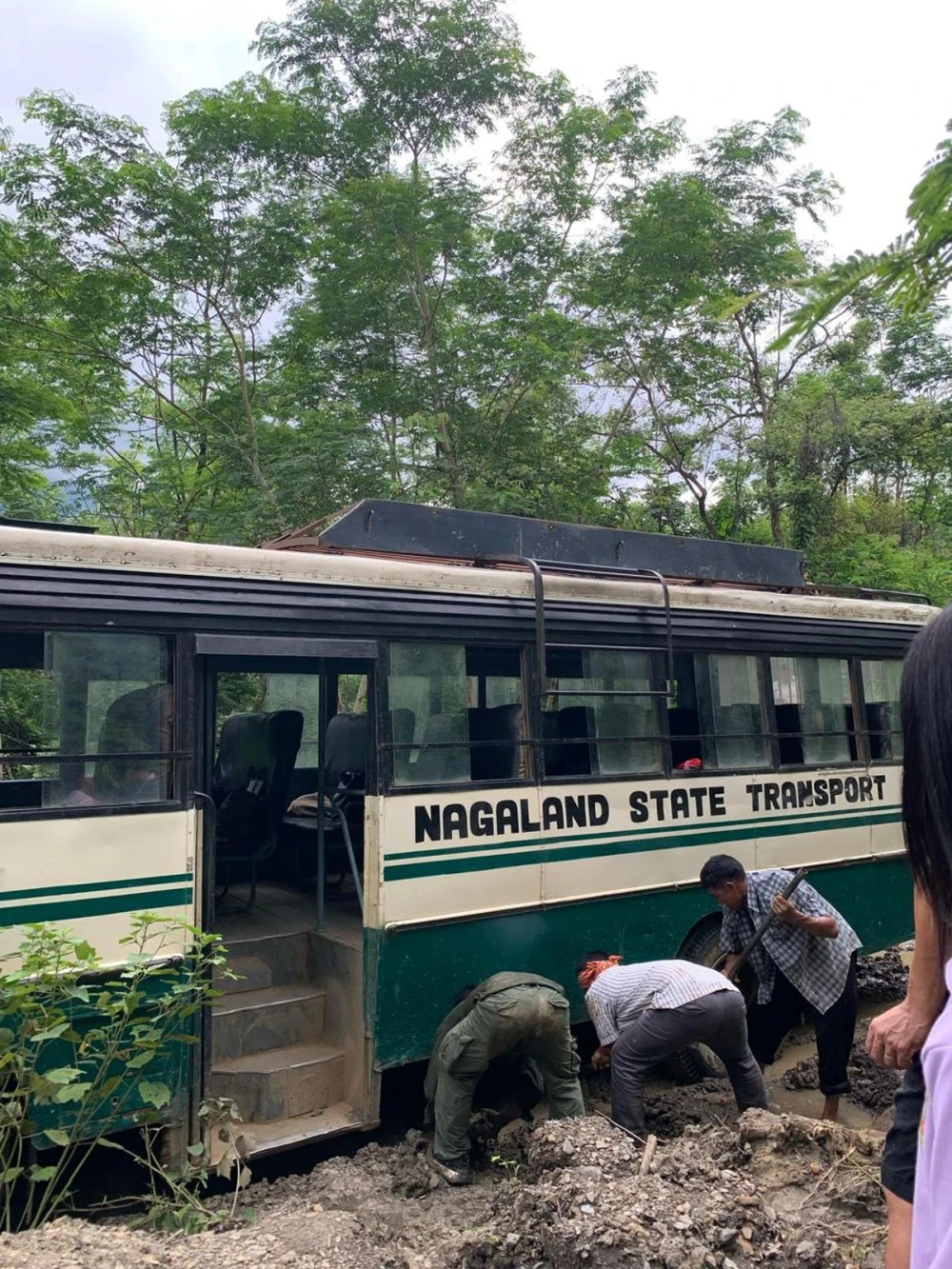
In contrast, those commuting from Peren have access to two smaller college buses. Although not ideal, they are at least able to manage their daily travel. However, students and teachers from Jalukie continue to bear the brunt of the transportation crisis.
The daily fare for the NST bus is ₹100 (to and fro), which poses a financial strain for many students and even some faculty. Furthermore, the same bus is also used by villagers and other local travelers, which increases the passenger load and adds further pressure to the limited transportation available. While the college principal has already apprised the Higher Education Department of the dire need for an additional bus, there is still no confirmation on when or if it will arrive.
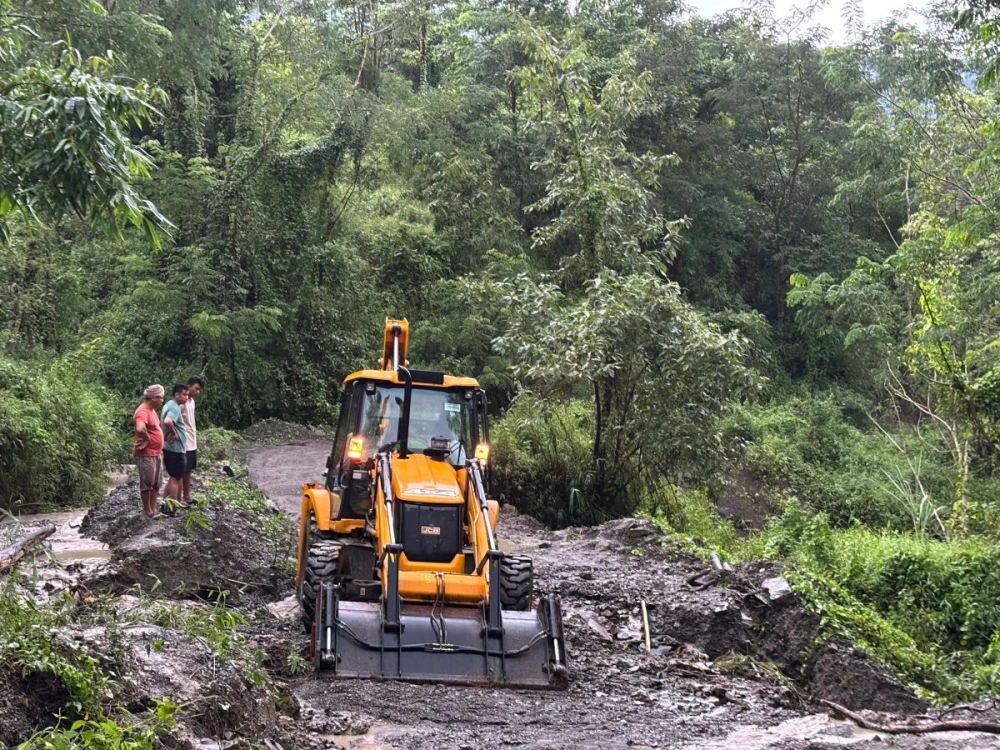
This lack of basic infrastructure is not only hindering access to education but is also putting lives at risk. According to one student, “We don’t need a highway. We only want a road that doesn’t make us fear for our lives every day.” The sentiment is widely shared across the college community, especially as the monsoon season continues and the risk of accidents grows higher.
Examination periods only worsen the situation. Morning shift students often have to wait until evening for the bus to return, while evening shift students must arrive early in the morning and wait several hours before their exams begin. The same applies to teachers on duty, who are forced to adjust their schedules around the availability of this one vehicle.
Students and teachers alike express a deep sense of sadness and concern. One teacher remarked, “Whenever we reach that broken stretch, I can’t help but wonder—will I even make it home tonight?”


